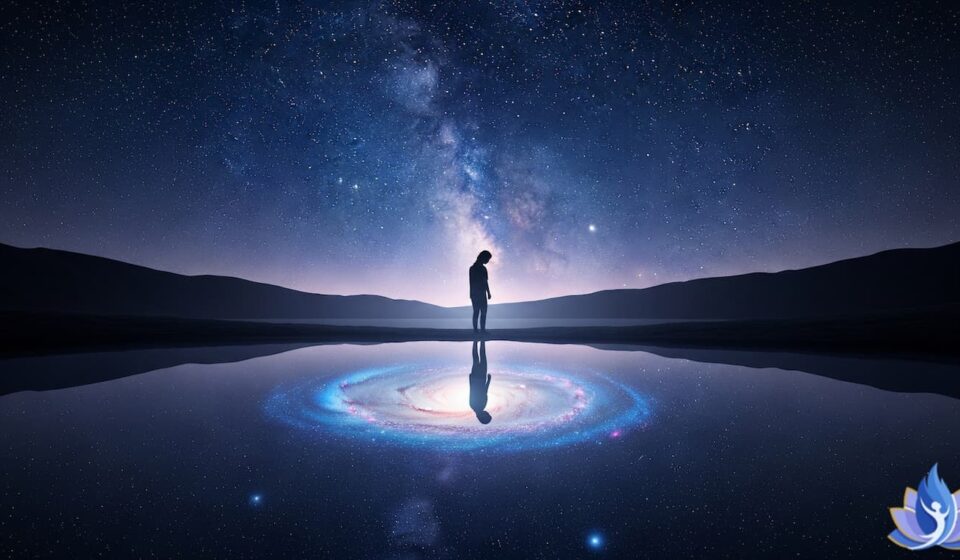The Great, Exhausting Scavenger Hunt for “Me”
Table Of Content
There’s a phrase that has become the unofficial motto of our generation: “I’m trying to find myself.”
It’s the reason we quit the stable job to backpack through Asia, the reason we cycle through hobbies like they’re seasonal trends, and the reason our bookshelf is groaning under the weight of self-help guides. We’re on a grand, epic, and frankly, exhausting scavenger hunt for our “true self.” We believe that somewhere out there—in a new city, a new relationship, or at the bottom of a green smoothie—we will finally discover the authentic, whole, and happy person we’re meant to be.
This quest is fueled by a deep-seated feeling that we are incomplete, broken, or lost. We see ourselves as a puzzle with missing pieces, and we spend our lives frantically searching for them.
But what if the entire premise is wrong? What if you’re not a puzzle to be solved, but a picture that’s already complete? What if the most profound spiritual truth is that you were never lost in the first place? This is the radical, liberating message of Advaita Vedanta.
The Case of Mistaken Identity
Advaita Vedanta is a non-dualistic school of Hindu philosophy, and its core teaching is breathtakingly simple: your true self isn’t something you need to find, build, or become. It’s something you need to realize you already are.
The reason we feel lost is a simple case of mistaken identity. We think we are our bodies, our jobs, our thoughts, our emotions, our successes, and our failures. We identify with this temporary, ever-changing, and fragile collection of experiences we call the “ego.” And because this ego is constantly in flux, we feel unstable, insecure, and incomplete.
Advaita Vedanta says this ego is just a mask. Your true self, the Atman, is the pure, unchanging, and blissful consciousness that is wearing the mask. It is the silent witness behind your thoughts, the calm awareness that experiences your emotions without being defined by them. It has never been broken, it has never been lost, and it is already whole.
Wisdom in Verse: The Most Famous Words You’ve Never Heard
This profound truth is the centerpiece of the Upanishads, the philosophical texts that form the foundation of Vedanta. In the Chandogya Upanishad, the sage Uddalaka teaches this to his son, Shvetaketu, repeating it like a sacred refrain.
तत्त्वमसि
Tat Tvam Asi
(Chandogya Upanishad, 6.8.7)
Translation: “That Thou Art” or “You Are That.”
What is “That”? “That” is Brahman—the ultimate, universal, all-pervading consciousness. The source of everything. The fabric of reality itself.
This isn’t a metaphor. It is a statement of fact. The verse is telling you that the individual consciousness within you (Atman) is not just a piece of the universal consciousness (Brahman); it is identical to it. You are not a wave in the ocean; you are the entire ocean in a single wave.
When you truly grasp this, the frantic search to “find yourself” comes to a screeching halt. How can you search for something that is the very essence of who you are? It’s like a fish swimming in the ocean, desperately searching for water.
How to Stop Searching and Start Realizing
This isn’t just an abstract idea. It’s a practical path to inner peace that you can walk every day.
- Practice Being the Witness. The next time you feel a strong emotion like anxiety or anger, try this: Instead of saying “I am anxious,” say to yourself, “I am aware of a feeling of anxiety.” This simple shift in language creates a space between you (the witness) and the feeling (the temporary experience). You are not the storm; you are the sky that holds the storm.
- Ask “Who Am I?” This is the core practice of self-inquiry (Atma Vichara). When a thought or feeling arises, ask yourself, “To whom is this thought appearing?” The answer is always, “To me.” Then ask, “Who am I?” You are not the thought, because you can observe it. You are not the body, because you can feel it. Keep tracing your identity back to its source—the silent, aware presence that is simply “I am.”
- See “That” in Everything. The Upanishads declare that Brahman is everything. Practice seeing that one divine consciousness in all beings. The person who annoys you, the stranger on the bus, the tree outside your window—all are expressions of “That.” This practice dissolves the illusion of separation that fuels the ego and connects you to the profound unity of life.
You Have Already Arrived
The quest to find yourself is a trick of the ego. It loves having a big, important project to work on. But your soul is not a project. It is a reality to be recognized.
You are not lost. You are not broken. You are not incomplete. You are the eternal, whole, and blissful consciousness you’ve been searching for. You have already arrived. Welcome home.
What would change in your life if you truly believed you were already whole and complete?
How would it feel to stop searching and simply be? Share your thoughts in the comments below!
If this article offered you a moment of peace, share it with a friend who is on their own scavenger hunt. And subscribe for more wisdom that reminds you of who you truly are.

